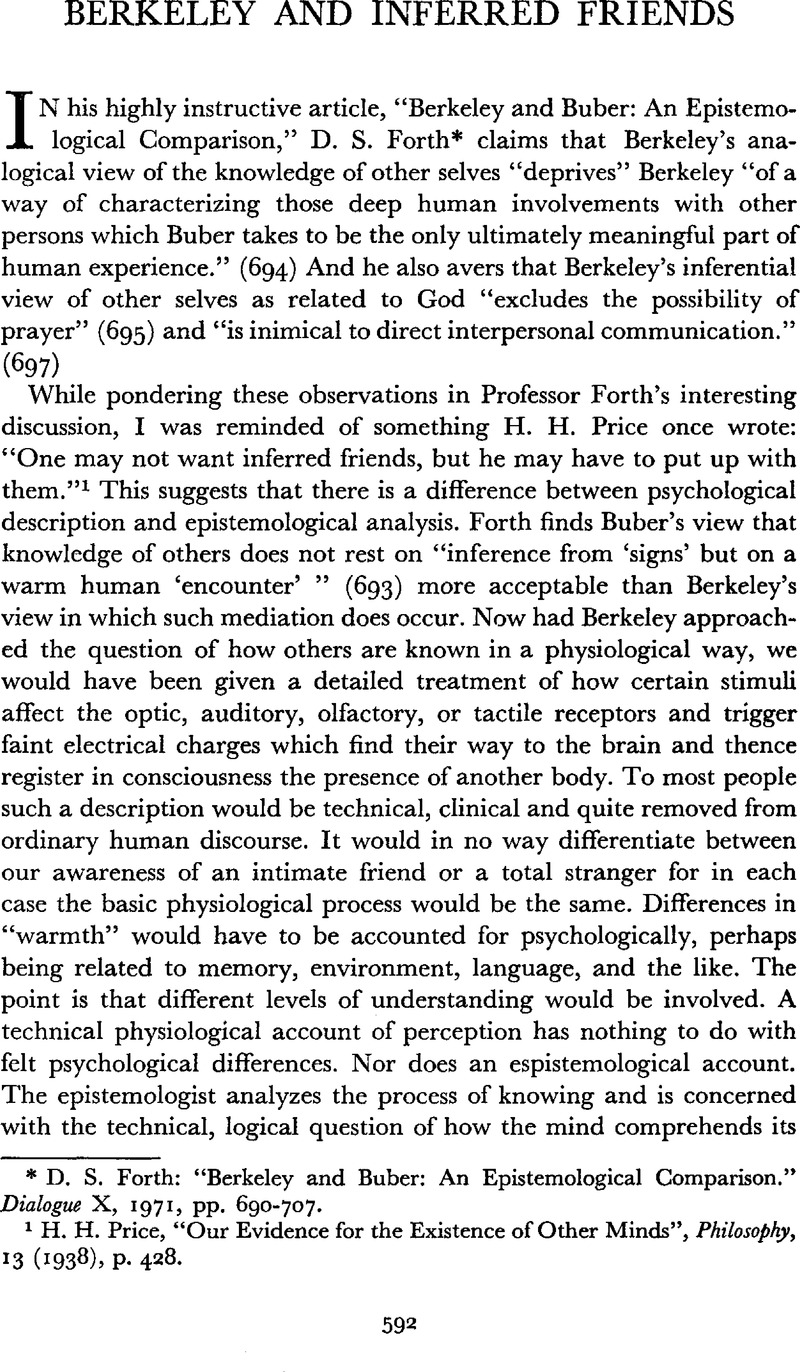No CrossRef data available.
Published online by Cambridge University Press: 09 June 2010

* Forth, D. S.: “Berkeley and Buber: An Epistemological Comparison.” Dialogue X, 1971, pp. 690–707CrossRefGoogle Scholar.
1 Price, H. H., “Our Evidence for the Existence of Other Minds”, Philosophy, 13 (1938), p. 428CrossRefGoogle Scholar.
2 Ducasse, C. J., Nature, Mind and Death (LaSalle: Open Court, 1951), p. 437Google Scholar.
3 Berkeley opposes Deism because it separates persons from God and he points out the religious and ethical worth of his view in the passage from the Third Dialogue which begins: “Not to mention that the apprehension of a distant deity naturally disposes men to a negligence in their moral actions. …” (Works, II, p. 258).
4 As to the religious availability of Berkeley's God, T. E. Jessop eloquently speaks of the sensed world as “an hourly manifest Providence, with God immediately behind it. Philosophically, the inference to God is not a trudge along a line of innumerable causes and effects but simply a step or two … We have only to open our eyes to be confronted with the first-hand effects of divine power, wisdom, and benevolence.” (Jessop, T. E., “Berkeley as Religious Apologist” in my New Studies in Berkeley's Philosophy, N.Y.: Holt, Rinehart, Winston, 1966, p. 106.Google Scholar)
5 Works, II, p. 237.